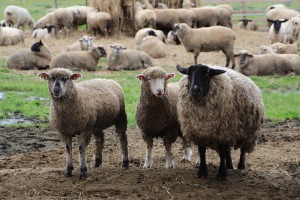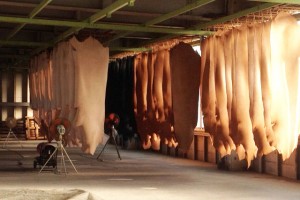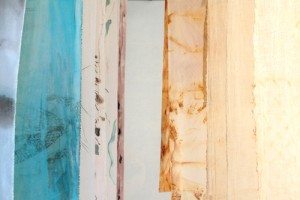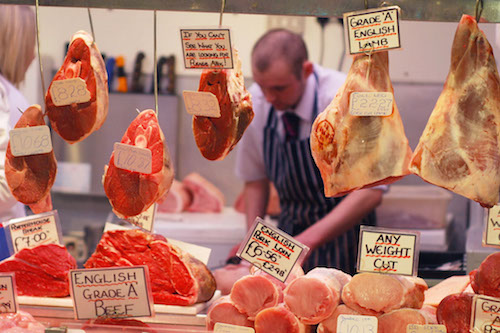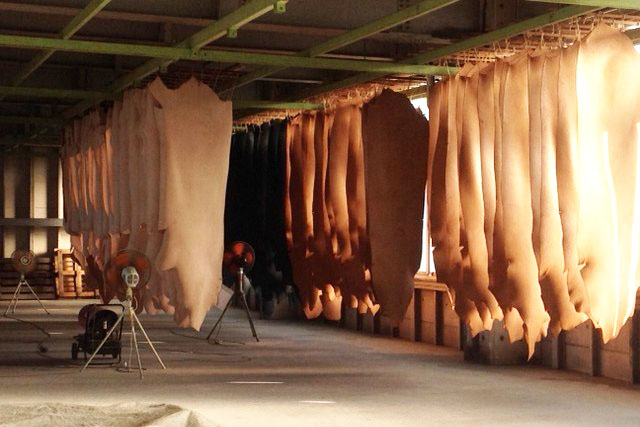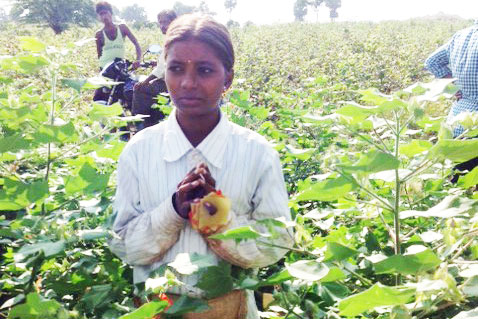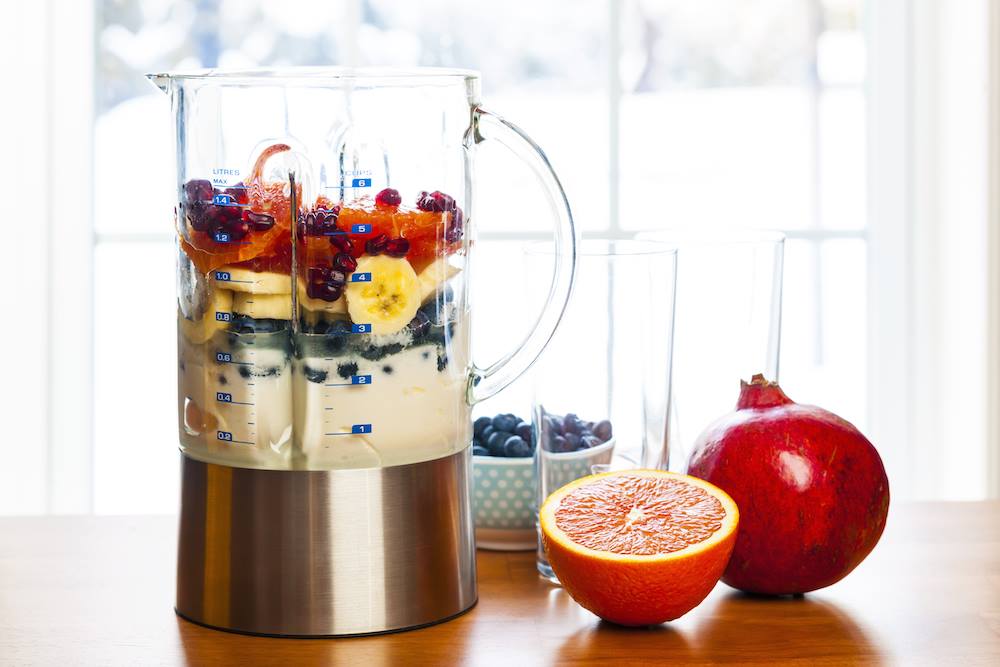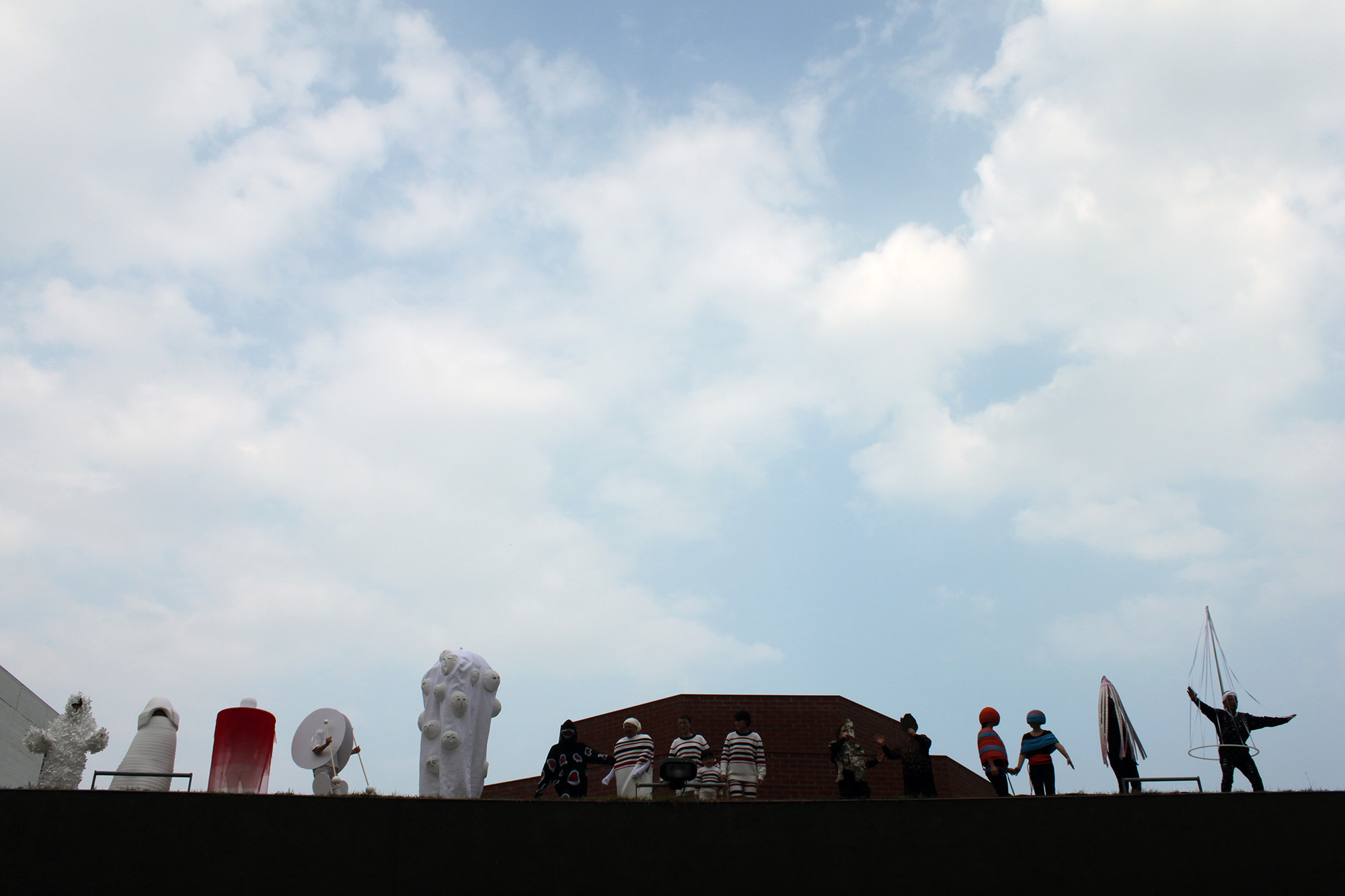It has been fifteen years since I became interested in organic cotton. I occasionally chose organic cotton products, such as towels and bed linens, but I hesitated to use them for my own knitted hat brand, ami-tsumuli. Now, I'll explain why I chose organic cotton.
So, why organic cotton? Is it because it is good for your skin? Or is it because it’s good for our environment? If yes, why is it good? There was a time I could not answer these questions, so I asked organic cotton professionals to find the answers.
But they made me more confused. Many people said different things to me, like, “If we all shifted to organic cotton, production could barely fulfill the world’s demand,” “Organic cotton is rather un-eco-friendly, because it uses more water during harvesting. We should encourage the low-chemical farming method. It is more realistic and eco-friendly.”
Since asking people did not lead me to any answer, I finally thought seeing the matter for myself was the best way to come up with my own answer. I decided to attend a tour organized by the Japan Organic Cotton Association to a Texas organic farm.
Cotton Farm in Lubbock County, Texas
On October 22, 2012, I first flew to Dallas from Narita International Airport. After an hour of domestic flight, we arrived at Lubbock County, Texas. Lubbock County is famous for its enormous production for cotton. We were able to look down at the vast field of cotton from the airplane, but it really surprised me that the farms are configured in a circle. Later, I found out this is to adapt to the irrigation system. This area is short of rain, so farmers water with sprinklers.
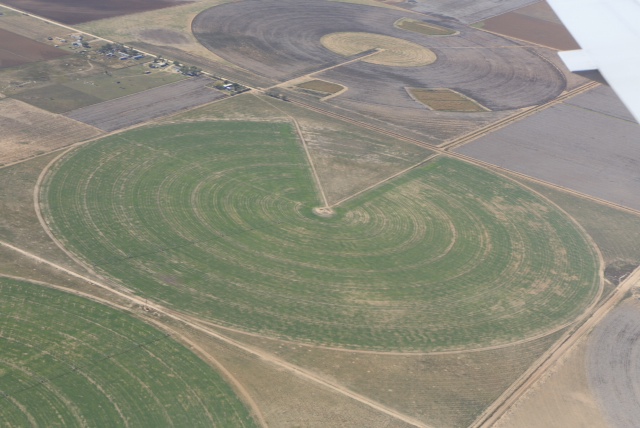
View of the Farm from Airplane (IMAGE: Courtesy of AVANTI)
Before night, we arrived at the hotel. The sun was still high, and the sun shone strongly, which was quite unbelievable compared to October weather in Japan.
For dinner, we were invited to a welcome party held by the families running organic cotton farms. The families were so close to each other, and I wondered if this is because they have a supportive system in which they fill each other’s deficits when cotton production is insufficient—that is, they understand each other’s hardships in growing organic cotton. I felt the warm ties between the families who have been helping each other for long time.
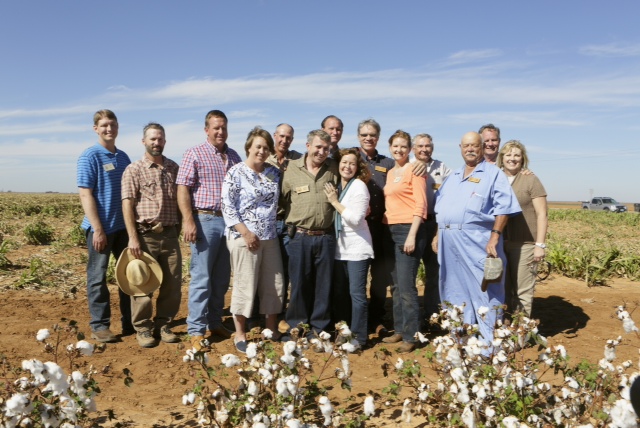
Farmers of Organic Cotton Farm (IMAGE: Courtesy of AVANTI)
Cotton Seed and Chemicals
The following day, we went out to the fields to see the organic farm, but it wasn’t only that. We were able to see the seed breeding experiment facilities, seed removing facilities, grading factory for the final cotton product, and so on.
The cotton field was just awesome. Under the endless blue sky, the field of plants grown to my knee had white fluffy cotton balls blooming here and there.
The fluffy lint of cotton is the fruit pulp. It has black seeds in the heart of it; the process to remove these seeds is called “ginning.” This is the first step that harvested cotton goes through. The lint is removed from the saw teeth by air blasts or rotating brushes, then compressed into bales. In this process, they select the best-quality seeds to prepare for the next year. This is the process that won’t happen with conventional cotton, since the seeds of the genetically modified organisms (GMOs) that are used in conventional cotton farming are patented, and farmers are obliged to return the seeds after use. In this case, farmers must repurchase the seeds next season, in a package with fertilizers and pesticides. By the way, 80% of the cotton produced on earth consists of GMOs.
Cotton is not consumed by humans; therefore, regulations on chemical use are much more lax. There are fertilizers, pesticides, herbicides, defoliants … I asked one of the farmers if they are not worried about their health.
“After all, I think we all try to believe what the pharmaceutical company says,” was her answer.
Cotton Classing Facility
At a cotton classing facility, regardless of whether the cotton is organic or not, all cotton produced in the area is collected. Samples are taken from each bale and are classed according to fiber strength, length, length uniformity, color, non-fiber content, and fineness using high-volume instrumentation. The price of cotton is graded here, and organic cottons are usually priced two times higher than conventional.
Although the chemical sprayed onto cotton will be washed away after processing, the crops collected at this facility are in their raw form. Classers here have no equipment, and they are exposed to the flying dust of cotton all day. I was worried for their health, for they might be inhaling toxicants.
I Choose Organic Cotton
After one full day of the visit, the strongest feeling I had was, “I want to choose organic cotton, because I do not want to pollute the soil anymore or use GMOs.”
It is true that we won’t be contaminated immediately by wearing clothes made of conventional cotton. However, it is also true that synthetic chemicals do ruin our soil, kill bacteria, and disrupt the balance of the ecosystem. GMOs will eradicate native species. This is not natural. When we disrupt the natural way, somewhere, someone is paying the balance. We should be aware that we are losing something that will never come back.
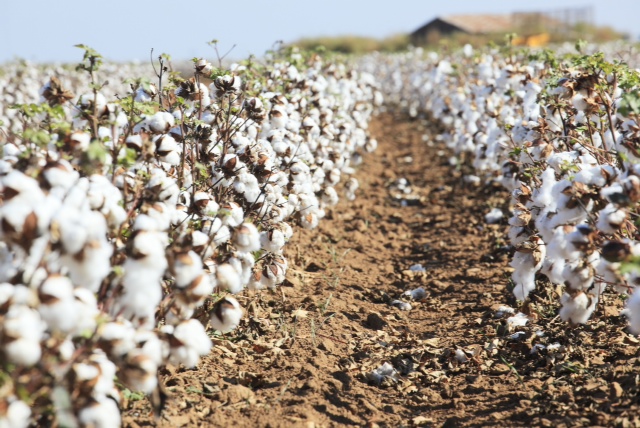
(IMAGE: Courtesy of AVANTI)
On the bus, I asked one of the farmers why many hesitate to switch to organic farming, although it sells twice as much higher or more. His answer was this.
“We are always afraid of poor crops. What’s more, organic farming is way harder than conventional. Who would want to work harder, if you are not promised a reward?”
I felt embarrassed when I heard his answer. Before asking him that question, I saw the innovative machines with GPSs, and I was thinking farming must not be so difficult if farmers own these kinds of machines.
Another woman shared with me that it is lonely to live at the farm. She and her husband are planning to close the farm after they retire. She has a son, but she said she couldn’t force him to do farming, because she knows very well how harsh it is to do farming for a living. I still remember her face when she added, “I’d be more than happy if someone wished to have my land to do organic farming.”











